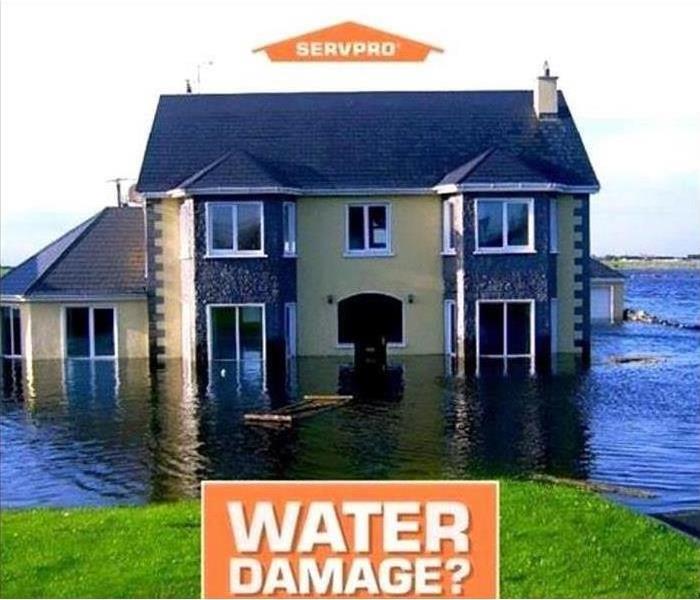SERVPRO of Virginia Beach Owner Explains When and Why You Should Hire a Professional After a Water Damage
5/14/2019 (Permalink)
The thing about water damage and repair professionals is that no one seems to have interest in knowing one until they're in desperate need of their help! We interviewed SERVPRO of Virginia Beach Franchise Owner, Anna Cheracles, to find out just what it is that a restoration professional does and when and why someone would need to hire one. Here's what Anna had to say:
What exactly does a water damage and repair professional do?
We arrive onsite within 4 hours (usually 1 hour) to remediate a water damage. The sooner you can stop the water and begin to dry the structure, the less damage you will have, which will reduce repairs that will need to be done.
Why is it important to call a professional?
We can restore vs. replace. We have special drying techniques which will save time and money for the insured and insurance company. You don't want to end up with any type of secondary damage or mold that could be prevented by calling a professional right away.
A professional will know when it is necessary to remove materials such as vinyl or laminate floors in order to dry sub floors. We have tools, such as moisture meters, that can detect exactly what's been affected so that we can properly mitigate the loss.
What are the most common problems water damage professionals see?
We often find pre-existing damage. It is important to properly maintain your home so that dry rot or other slow leaks do not occur. If you have a pipe burst under your sink, but you have dry rot already showing on you sub floor, often the insurance companies will not cover this due to the home not being maintained.
Another problem we see is when a homeowner does not take immediate action. They will wait a few days for the insurance company to come out before they call a mitigation company to come out. Or they try to do the work themselves. This will only prolong the process and possibly cause more damage later on. You need special equipment to properly dry a structure.
When should I call a water damage professional?
Anytime you experience a water damage, you should call a professional. The sooner you call, the more you can minimize damage. Even if the cause of the problem is still not fixed, the faster we can begin extracting water, you can lessen the chance of further damage. Often times an area can feel dry to the touch, but it is important to have a professional use a moisture meter to check for water behind cabinets, walls, etc. Dry wall may feel dry, but the insulation inside the wall could possibly be wet. Carpet could feel dry, but the sub floor and padding could have elevated moisture levels.
How much will it cost?
We use industry standard prices, which are set for each region in the country through a program called Xactimate. Most of the charges are done by square foot, by a labor hour or per piece of equipment. It is pricey to properly mitigate your home, but if you do it right the first time, you won't have mold grow and will save money in the long run. We deal directly with the insurance companies so there will not be any type of paperwork that you will need to file. We take care of it all!
What should I do while waiting?
If possible, turn the source of the water off. Begin mopping up water or blotting with towels. DO NOT use a shop vac to remove water. Shop vacs are not meant to extract a lot of water, only a little bit here and there. Put all furniture up on blocks, or even put foil under the legs of furniture to protect it and to also protect your carpet from getting any staining on it. You should also wipe up any water on wood furniture so it does not ruin it. Do not use electrical devices where the moisture is present. Make sure to not stand under any sagging ceilings.
How do I decide who to hire?
You should always try to hire someone who has a national reputation and a brand that stands behind them. Take advice from your insurance company, they work with these professionals everyday and should have a good recommendation.





 24/7 Emergency Service
24/7 Emergency Service
